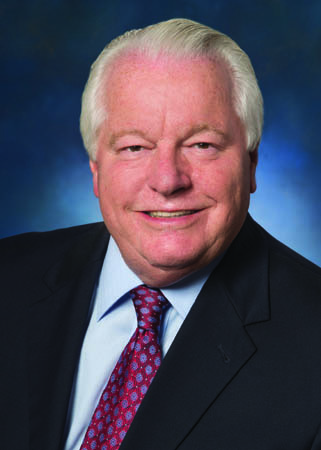“We are an early barometer of when the economy goes bad, because the first thing people cut is travel. We are also a barometer of when the economy is picking up again.”
Congratulations on celebrating your 10th anniversary with the U.S. Travel Association. Why are you passionate about travel?
This association and industry attracts great people who work in terrific places and we do good things for Americans’ way of life. If you don’t get away from the rat race occasionally, you are going to burn out. When I was in my early 20s, I was lucky to go to the Jersey Shore in my home state with my aunt and uncle. My daughter just got back from a week in Shanghai. I urged my children to roam the world so the world would not pass them by.
What has been the U.S. Travel Association’s biggest accomplishment during the past decade?
I think the passage of the Travel Promotion Act (in 2009). The main thing is unifying an industry. We just had our board meeting, and to illustrate the importance of the industry, Valerie Jarrett (senior advisor to President Barack Obama) came to speak with us. Another success is the passage of a 10-year visa for China. This year, 2 million Chinese came to America. The government estimates that in 2021, 7.3 million will visit.
Is the recent agreement between the United States and China a sign of things to come? What does this mean for the travel industry?
I have never seen this with government. President Obama announced it on Monday, Nov. 10, and on Wednesday, Nov. 12, it was law. It was a huge boon for travel. The average traveler from China spends $7,000 and 25 percent of Chinese travelers are return guests. This increases visa capacity overnight.
Please describe efforts in working with the U.S. government to improve the image of the meetings and events industry.
We worked to set up meetings with the White House and we met with President Obama. It was the first time a sitting president ever sat with a travel agency group to talk about our industry. The president has gotten behind travel in a big way. We had to put it clearly in language to the government—one in nine Americans is in the travel industry.
How did the recession impact the goals and planning of your organization?
We got caught flat-footed in 2009. Now we are getting the word out; this is America’s adult education. Deals do not get done without face-to-face meetings. It all started with the financial crisis in 2009 and the bailouts. We learned a new term, the “AIG effect.” In 2009, you were a bad person to have a meeting in a resort. The industry had to fight back to show why meetings are so important.
Can you pinpoint a specific event or moment that proved to be a telltale sign that the economy and tourism were about to rebound?
We have an event—IPW—which attracts companies from all over the world. In 2012, we blew the doors off our conference in Las Vegas, in booths, attendance and sponsorships. The turning point in 2012 was when people started traveling again. The industry had been on its knees. We are an early barometer of when the economy goes bad, because the first thing people cut is travel. We are also a barometer of when the economy is picking up again.
Several organizations and associations have come together to promote the meetings and events industry, such as Meetings Mean Business. What have you learned from representatives from these stakeholders?
We’ve learned we’re much more effective together. There is a tendency to want to do your own thing and the industry was acting that way. Meetings Mean Business and all these groups have come together with an equal voice.
What role has the U.S. Travel Association played in discussions and actions with hospitality stakeholders to promote a positive message from the tourism and meetings industries?
We raised $500,000 and hired a policy firm, APCO. It is doing the work, hitting social media and PR firms. We understand the value of getting this message advanced quickly. We have partnered with Travel Channel on Travel Effect, a program to promote personal, business, social and economic benefits that taking earned time off can deliver. (The agreement with the Travel Channel begins this month and includes cross-promotional opportunities combining the organizations’ messages.)
In the next 10 years, how will the meetings and events industry change?
It is going to change, or become extinct. We have to embrace technology. At the IMEX conference in October in Las Vegas, while a keynote speaker was on stage, screens off to the side were showing what attendees were saying on social media—Facebook, Twitter, etc. It kept people engaged.
Are meetings and events safe? Has public perceptions been changed for good?
I don’t think so. We still have to tell the story about why meetings are good. There is still a perception that going to meetings is frivolous.
About Roger Dow
Hometown: Ridgewood, New Jersey
Education: Bachelor’s degree in psychology from Seton Hall University, South Orange, New Jersey
Career: U.S. Army staff sergeant 1969-70 during Vietnam War; 34 years with Marriott (interrupted by Army service); in 2005 became president and CEO of U.S. Travel Association, which encompasses all sectors of the country’s travel industry. He helped expand U.S. travel into a $1.9 trillion industry.


